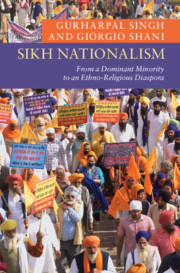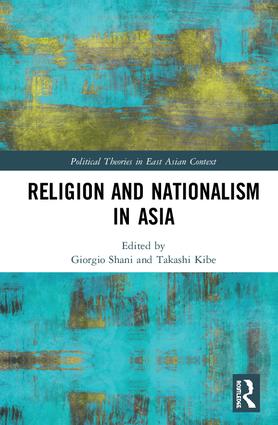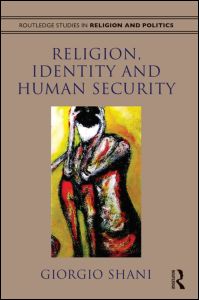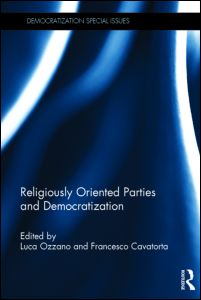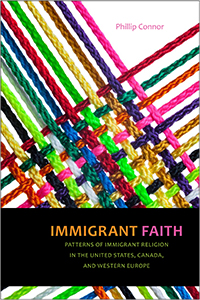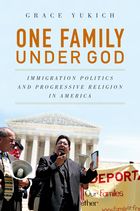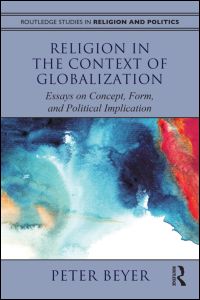Sikh Nationalism
Gurharpal Singh, School of Oriental and African Studies, University of London
Giorgio Shani, International Christian University, Tokyo
Publisher: Cambridge University Press
Expected online publication date: November 2021
Print publication year:2021
Online ISBN:9781316479940
Discount Flyer: Here
Book description
This important volume provides a clear, concise and comprehensive guide to the history of Sikh nationalism from the late nineteenth century to the present. Drawing on A. D. Smith's ethno-symbolic approach, Gurharpal Singh and Giorgio Shani use a new integrated methodology to understanding the historical and sociological development of modern Sikh nationalism. By emphasising the importance of studying Sikh nationalism from the perspective of the nation-building projects of India and Pakistan, the recent literature on religious nationalism and the need to integrate the study of the diaspora with the Sikhs in South Asia, they provide a fresh approach to a complex subject. Singh and Shani evaluate the current condition of Sikh nationalism in a globalised world and consider the lessons the Sikh case offers for the comparative study of ethnicity, nations and nationalism.
Reviews
‘This is a magisterial work that will be a reference point for many years. The authors show that Sikhs are so much more than a faith community. Using a wide array of social and political theory, they have carefully fashioned a comprehensive understanding of Sikhs as an ethnicity, a nation and a minority with a distinctive diaspora.’
Robin Cohen - University of Oxford
‘This well researched and elegantly written book provides the most complete account to date of the complexities of Sikh nationalism. It explores the historical background, the influence of diaspora communities and the intersection of religion, ethnicity and politics. This authoritative study is a benchmark in the study of South Asian socio-politics, globalised religious communities and the contemporary rise of religious neo-nationalism throughout the world.’
Mark Juergensmeyer - University of California
‘This is an exciting study that seeks to go beyond religion and territory. Singh and Shani masterfully map out the ever-shifting historical, political, economic, social, and cultural terrain of Sikh nationalism. In doing so, they offer a nuanced reading of the unfolding of critical events and their complex interconnections, both internal and exogenous, in colonial, postcolonial, contemporary Indian politics and diaspora settings. The authors address difficult questions of whether the Sikh case as an identity-driven nationalism in the throes of modern globalism seeks separatism or multiculturalism, long-distance nationalism or de-territorialisation. As the dynamic past of the minority Sikh religion intersects with the robust Sikh global diaspora today, new possibilities of imagining Sikh futures open up. We have here a most informative, accessible and provocative resource.’
Nikky-Guninder Kaur Singh - Colby College
‘This is a major study of the Sikhs, who can be variously framed as a world religion, a nation and a religious minority. Theoretically sophisticated and empirically rich, it offers a provocative thesis about the deterritorialisation of contemporary nationalisms.’
John Hutchinson - London School of Economics
‘The resilient nationalism of “small peoples” in South Asia has been overlooked. This book outlines the turbulent history of the Sikhs from their past regional ascendancy to the grim aftermath of the partitionist creation of India and Pakistan, and takes us onward to the present, wrapping in an account of Sikhdom beyond its homeland. This study will be of general interest to students and scholars of nationalism, ethnicity and diasporas. Singh and Shani are to be commended for their synopsis.’
Brendan O’Leary - University of Pennsylvania
‘In a clear and insightful analysis, the volume reveals the centrality of the Sikh question to the division of India in 1947 and the contemporary politics and international relations in South Asia. This thoughtful study will be essential reading for scholars and students of South Asia.’
Ian Talbot - University of Southampton
